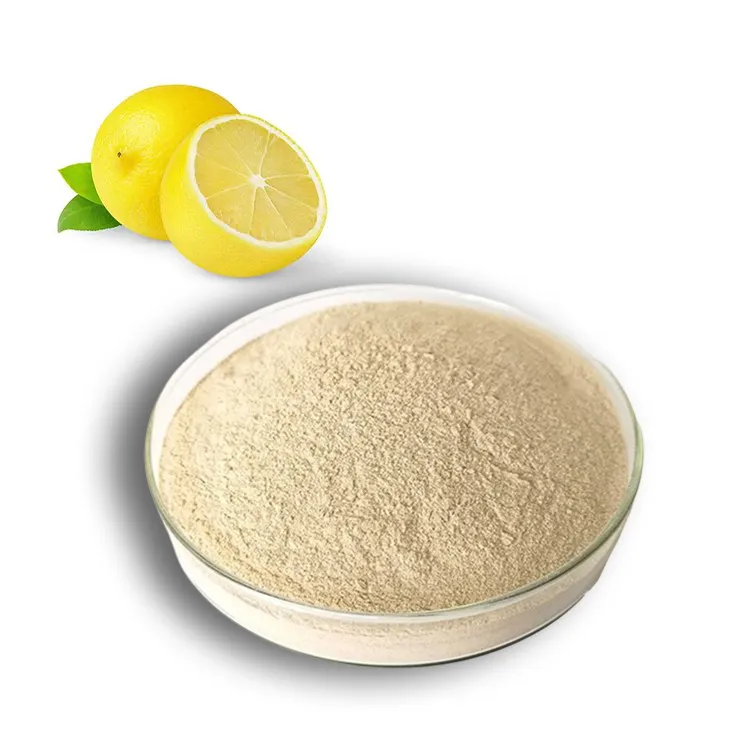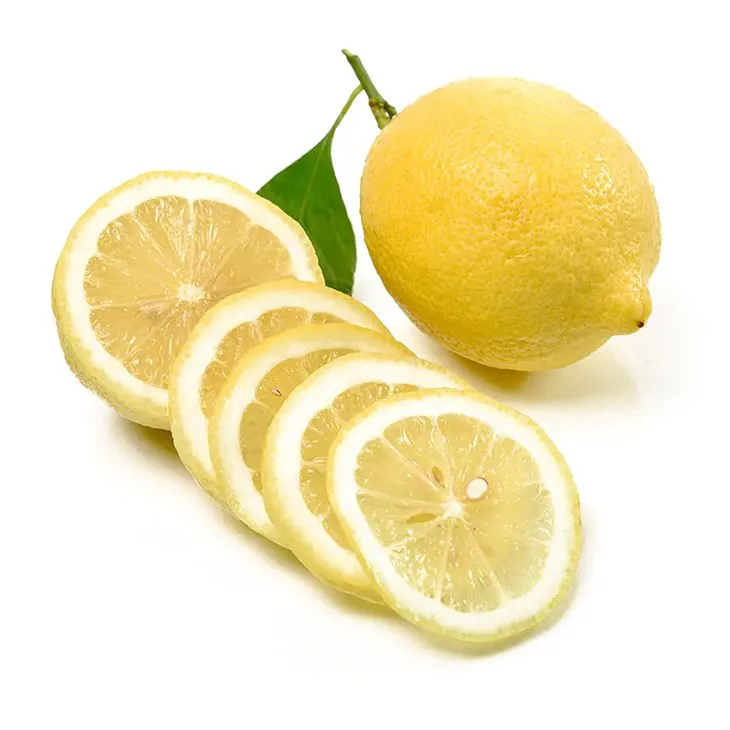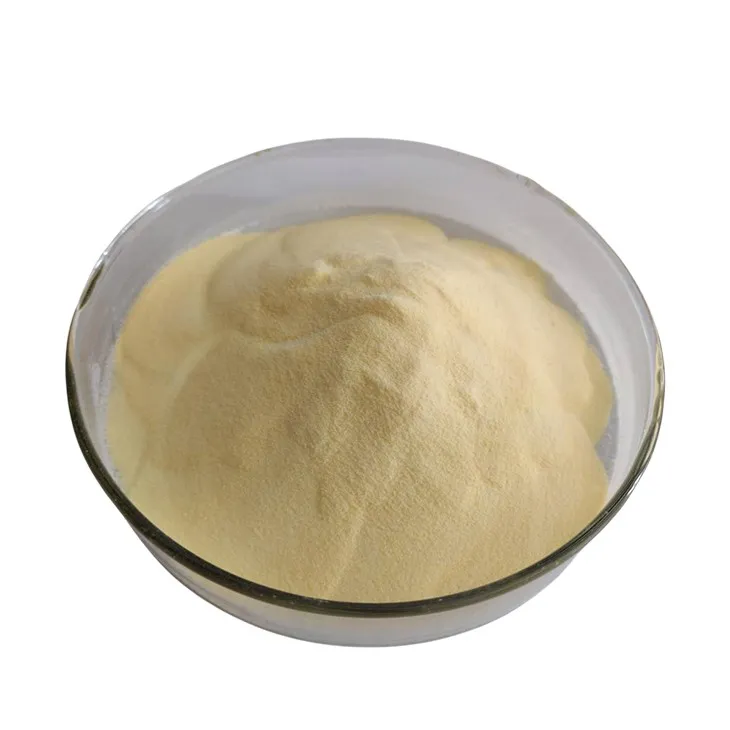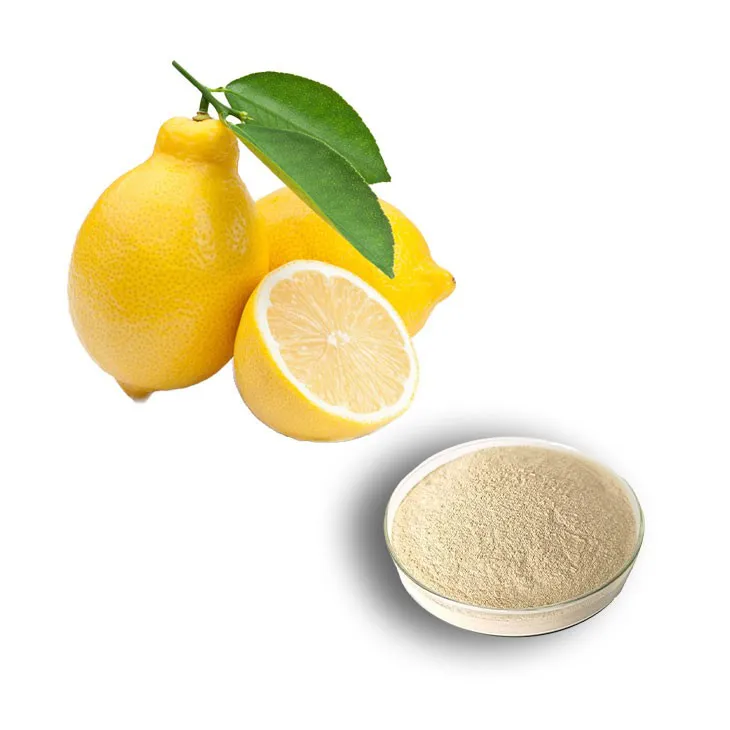- 0086-571-85302990
- sales@greenskybio.com
Lemon Extract Bulk Manufacturers and Exporters
2024-12-20

1. Introduction
Lemon Extract has emerged as a highly sought - after product in various industries, including food, beverage, cosmetics, and pharmaceuticals. Its unique flavor, aroma, and potential health benefits make it a valuable ingredient. Bulk manufacturers play a crucial role in ensuring a consistent supply of high - quality Lemon Extract, while exporters are responsible for making this product available to international markets. This article delves into the operations of both manufacturers and exporters in the Lemon Extract industry, exploring the challenges and opportunities they face.

2. Lemon Extract Bulk Manufacturers
2.1 Sourcing of Lemons
The first step for lemon extract bulk manufacturers is to source the finest lemons. Quality lemons are the foundation of a good lemon extract. Manufacturers often look for lemons that are fresh, ripe, and free from blemishes. They may establish relationships with local farmers or source from different regions to ensure a continuous supply. For example, in regions like California in the United States and Sicily in Italy, lemons are known for their high quality. Manufacturers need to consider factors such as the variety of lemons (e.g., Eureka or Lisbon lemons), as different varieties can have slightly different flavor profiles.
2.2 Extraction Techniques
Once the lemons are sourced, manufacturers employ sophisticated extraction techniques. There are several methods used in the industry:
- Solvent Extraction: In this method, a solvent such as ethanol is used to extract the essential oils and flavors from the lemons. The solvent is carefully chosen to ensure that it is safe for use in food and other applications. After extraction, the solvent is removed, leaving behind the concentrated lemon extract.
- Cold - Press Extraction: This is a more natural method where the lemons are mechanically pressed to extract the juice. The juice is then further processed to obtain the extract. Cold - press extraction is often preferred for its ability to preserve the natural flavor and aroma of the lemons.
- Steam Distillation: Steam is passed through the lemons to extract the volatile compounds. This method is commonly used for obtaining essential oils from lemons. The resulting distillate contains the characteristic lemon aroma and can be used in the production of lemon extract.
Manufacturers need to carefully control the extraction process to ensure consistency in the quality of the lemon extract. This includes monitoring factors such as temperature, pressure, and extraction time.
2.3 Quality Control and Assurance
Quality control is of utmost importance for lemon extract bulk manufacturers. They need to ensure that the final product meets certain standards. Some of the key aspects of quality control include:
- Purity Testing: Manufacturers test for the purity of the lemon extract, ensuring that it is free from contaminants such as pesticides, heavy metals, and other impurities. This may involve using advanced analytical techniques such as gas chromatography - mass spectrometry (GC - MS) to analyze the chemical composition of the extract.
- Flavor and Aroma Profiling: The flavor and aroma of the lemon extract are critical. Manufacturers use sensory evaluation methods, where trained panelists assess the product for its characteristic lemon flavor, aroma, and intensity. They also compare the product to established standards or reference samples.
- Concentration and Potency: The concentration of the active compounds in the lemon extract needs to be consistent. Manufacturers measure the levels of key components such as citric acid, limonene, and other flavor - and - aroma - contributing compounds to ensure that the product has the desired potency.
By implementing strict quality control measures, manufacturers can produce lemon extract that is reliable and consistent in quality, which is essential for meeting the demands of their customers.

3. Lemon Extract Exporters
3.1 Navigating Trade Regulations
Exporters of lemon extract face a complex web of trade regulations. Different countries have varying requirements regarding food safety, labeling, and import - export procedures. For example, in the European Union, there are strict regulations on the use of food additives and the labeling of food products. Exporters need to ensure that their lemon extract complies with these regulations. They may need to obtain certifications such as ISO 22000 (Food Safety Management System) to demonstrate compliance. Additionally, some countries may have import restrictions or tariffs on certain food products, which exporters must take into account when planning their shipments.
3.2 Logistics and Packaging
Logistics and packaging are crucial aspects of exporting lemon extract. The product needs to be packaged in a way that preserves its quality during transportation. This may involve using specialized packaging materials such as dark - colored bottles to protect the extract from light - induced degradation. In terms of logistics, exporters need to consider factors such as shipping methods (e.g., air freight or sea freight), transit times, and temperature control. For example, if the lemon extract is sensitive to heat, exporters may need to choose a shipping method that can maintain a cool environment during transit.
- Packaging Options: There are several packaging options available for lemon extract. These include glass bottles, which are popular for their inert nature and ability to preserve the product's quality. Plastic bottles are also used, especially for larger volumes due to their cost - effectiveness and durability. Additionally, some exporters may use sachets or small - volume containers for samples or for use in the hospitality industry.
- Shipping Considerations: When choosing a shipping method, exporters need to balance cost and speed. Air freight is faster but more expensive, while sea freight is more cost - effective but has a longer transit time. They also need to consider the reliability of the shipping carrier and the potential for delays. For example, during peak shipping seasons, sea freight may be subject to longer delays due to high volumes of cargo.
3.3 Market Development and Customer Relationships
Exporters play an important role in market development for lemon extract. They need to identify potential markets and customers, and promote their product in those markets. This may involve participating in international trade fairs, conducting market research, and establishing relationships with local distributors or end - users. Building strong customer relationships is also key. Exporters need to provide excellent customer service, including timely responses to inquiries, reliable delivery, and after - sales support. By understanding the needs of their customers and providing tailored solutions, exporters can expand their market share and increase the demand for lemon extract in international markets.

4. Challenges in the Lemon Extract Industry
4.1 Fluctuating Lemon Prices
One of the major challenges faced by both manufacturers and exporters is the fluctuating prices of lemons. Lemon prices can be influenced by factors such as weather conditions, crop yields, and market demand. For example, a drought or a frost can significantly reduce lemon crops, leading to an increase in prices. This can impact the cost of production for manufacturers and the profit margins for exporters. To mitigate this risk, some manufacturers may enter into long - term contracts with lemon suppliers, while exporters may adjust their pricing strategies based on market conditions.
4.2 Competition
The lemon extract industry is highly competitive. There are numerous manufacturers and exporters vying for market share. Competitors may differentiate themselves based on factors such as price, quality, and brand reputation. For manufacturers, staying competitive may require continuous investment in research and development to improve extraction techniques and product quality. Exporters may need to focus on building strong brand identities and offering unique value - added services to their customers, such as customized packaging or fast - track shipping options.
4.3 Regulatory Changes
As mentioned earlier, trade regulations are constantly evolving. New regulations regarding food safety, environmental protection, and labeling can pose challenges for both manufacturers and exporters. Keeping up with these changes requires significant resources and expertise. Manufacturers and exporters need to stay informed about regulatory developments, and be prepared to adapt their operations accordingly. For example, a new regulation on the use of certain solvents in extraction processes may require manufacturers to invest in new equipment or modify their existing processes.

5. Opportunities in the Lemon Extract Industry
5.1 Growing Demand in the Health and Wellness Sector
The increasing focus on health and wellness presents a significant opportunity for the lemon extract industry. Lemon extract is known for its potential health benefits, such as its antioxidant properties, digestive aid, and immune - boosting effects. As consumers become more health - conscious, the demand for lemon - based products, including lemon extract, is likely to increase. Manufacturers and exporters can capitalize on this trend by developing products specifically targeted at the health and wellness market, such as dietary supplements or functional beverages containing lemon extract.
5.2 Expansion in Emerging Markets
Emerging markets offer great potential for the growth of the lemon extract industry. Countries in Asia, Africa, and South America are experiencing economic growth and an expanding middle class with increasing purchasing power. These consumers are becoming more interested in international food and beverage products, including those containing lemon extract. Exporters can target these emerging markets by adapting their marketing strategies to local cultures and preferences, and by establishing local distribution channels.
5.3 Innovation in Product Applications
There is ample room for innovation in the application of lemon extract. In addition to its traditional uses in food and beverage, lemon extract can be explored for use in new product categories such as personal care products (e.g., skin creams, shampoos), home cleaning products (e.g., all - purpose cleaners), and even in the field of aromatherapy. Manufacturers can collaborate with other industries to develop new and innovative products using lemon extract, thereby expanding the market for this versatile ingredient.
6. Conclusion
In conclusion, lemon extract bulk manufacturers and exporters play vital roles in the global supply chain of this valuable product. Manufacturers need to focus on sourcing high - quality lemons, using advanced extraction techniques, and implementing strict quality control measures. Exporters, on the other hand, must navigate complex trade regulations, manage logistics, and develop strong customer relationships. Despite the challenges such as fluctuating lemon prices, competition, and regulatory changes, there are also significant opportunities in the form of growing demand in the health and wellness sector, expansion in emerging markets, and innovation in product applications. By leveraging these opportunities and effectively addressing the challenges, both manufacturers and exporters can thrive in the lemon extract industry and contribute to its continued growth.
FAQ:
What are the key factors for lemon extract bulk manufacturers to ensure product quality?
For lemon extract bulk manufacturers, several key factors contribute to ensuring product quality. Firstly, the sourcing of lemons is crucial. They must select the finest lemons, which are often determined by factors such as the variety of lemon, its origin, and the ripeness at the time of harvest. High - quality lemons are more likely to yield a pure and flavorful extract. Secondly, the extraction technique plays a significant role. Sophisticated extraction methods need to be employed to ensure that the active compounds in the lemons are efficiently and accurately extracted without introducing contaminants. This may involve using advanced machinery and following strict processing procedures. Additionally, quality control measures throughout the manufacturing process, including regular testing for purity, potency, and safety, are essential to maintaining the high - quality standard of the lemon extract.
How do lemon extract bulk manufacturers maintain consistency in their products?
To maintain consistency in their products, lemon extract bulk manufacturers follow several practices. They start with standardized sourcing procedures. By consistently choosing lemons from the same reliable sources or with similar characteristics, they can ensure a more uniform raw material. In the extraction process, they use precise and reproducible techniques. This means that the machinery settings, extraction time, temperature, and other parameters are carefully controlled and maintained at the same levels for each batch. Quality control also plays a part in consistency. Regular sampling and testing of the extract during different stages of production allow manufacturers to detect any variations early and make adjustments. Moreover, they may also have strict inventory management to ensure that the ingredients used in each batch are fresh and of consistent quality.
What are the main challenges faced by lemon extract exporters?
Lemon extract exporters face multiple challenges. One of the main challenges is dealing with complex trade regulations. Different countries have various rules regarding the import of food products like lemon extract. This includes requirements for product labeling, safety certifications, and compliance with specific quality standards. Exporters need to be well - versed in these regulations and ensure that their products meet all the necessary criteria. Logistics is another significant challenge. Lemon extract needs to be transported under appropriate conditions to maintain its quality. This may involve considerations such as temperature control, packaging to prevent leakage or spoilage, and timely delivery. Additionally, currency exchange rate fluctuations can impact the profitability of exports, and exporters also need to deal with competition in the international market.
How do lemon extract exporters manage to deliver products to different corners of the world?
Lemon extract exporters manage global delivery through a combination of strategies. They build strong relationships with reliable shipping and logistics partners. These partners have the expertise in handling food products and can ensure proper storage and transportation conditions. Exporters also plan their shipments carefully, taking into account factors such as the transit time, customs clearance requirements, and destination - specific regulations. In terms of marketing, they identify potential markets around the world and understand the local demand and preferences. This helps them target their sales efforts effectively. They may also participate in international trade fairs and exhibitions to promote their lemon extract products and connect with international customers.
What opportunities exist in the lemon extract manufacturing and exporting industry?
The lemon extract manufacturing and exporting industry has several opportunities. With the increasing global interest in natural and healthy products, there is a growing demand for lemon extract in various sectors such as the food and beverage industry, cosmetics, and pharmaceuticals. Manufacturers can capitalize on this trend by developing new and innovative products, such as lemon extract - based functional foods or natural skincare products. In emerging economies, there is also an expanding market for imported high - quality food ingredients like lemon extract. Exporters can explore these new markets and establish their presence early. Additionally, advancements in extraction technology offer the opportunity to improve product quality and efficiency, reducing costs and enhancing competitiveness in the global market.
Related literature
- Quality Control in Lemon Extract Production"
- "Exporting Food - Based Extracts: A Guide for Lemon Extract"
- "The Global Market for Lemon Extract: Trends and Opportunities"
- ▶ Hesperidin
- ▶ citrus bioflavonoids
- ▶ plant extract
- ▶ lycopene
- ▶ Diosmin
- ▶ Grape seed extract
- ▶ Sea buckthorn Juice Powder
- ▶ Beetroot powder
- ▶ Hops Extract
- ▶ Artichoke Extract
- ▶ Reishi mushroom extract
- ▶ Astaxanthin
- ▶ Green Tea Extract
- ▶ Curcumin Extract
- ▶ Horse Chestnut Extract
- ▶ Other Problems
- ▶ Boswellia Serrata Extract
- ▶ Resveratrol Extract
- ▶ Marigold Extract
- ▶ Grape Leaf Extract
- ▶ blog3
- ▶ Aminolevulinic acid
- ▶ Cranberry Extract
-
What is Cranberry Extract Good For?
2024-12-20
-
What Organ Is Cranberry Good For?
2024-12-20
-
Sophora Japonica Flower Extract
2024-12-20
-
Maitake Mushroom Extract
2024-12-20
-
White mustard seed extract
2024-12-20
-
Dan Shen Root Extract/Salvia Root Extract
2024-12-20
-
Black Garlic Extract
2024-12-20
-
Cassia Seed Extract
2024-12-20
-
Bitter Melon Extract
2024-12-20
-
Acerola Extract
2024-12-20
-
Sugarcane Extract
2024-12-20
-
Chia Seed Powder
2024-12-20


























